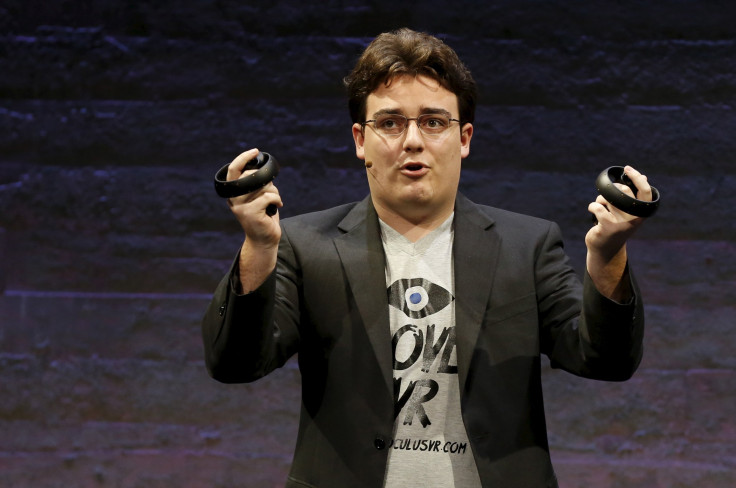Oculus Founder Palmer Luckey Considers Purchasing HTC's Vive Virtual Reality Division

The high-end virtual reality market has been a two-company race, but could it shrink down to one? In a Reddit thread, Oculus founder Palmer Luckey asked users on the Oculus subreddit if he should buy HTC’s Vive virtual reality division.
Luckey also posted a poll asking the same question on Twitter:
Should I buy HTC Vive?
— Palmer Luckey (@PalmerLuckey) August 25, 2017
On paper, it’s a stretch that Luckey alone could buy the Vive from HTC. Exact financial information for HTC’s Vive is unavailable, but despite HTC’s recent struggles, the whole company still has an estimated market value of around $1.8 billion. By comparison, Fortune estimated Luckey’s net worth in 2016 to be around $730 million.
But at the same time, it’s not out of the question that HTC could unload some of its assets. Last week, the Taiwanese company was reportedly looking into selling off parts of itself or being acquired wholesale by another competitor. HTC was an early leader in the smartphone market, but since its peaks in 2012, the company has become an also-ran next to market leaders like Apple and Samsung. Its phones are now rarely sold by major carriers and the company has an estimated 2.2 percent of U.S. market share.
For HTC, virtual reality and the Vive have been one of the few areas where the company has had strong momentum. At the moment, the Vive and Oculus Rift virtual reality headsets are the only consumer-level models with high-end room scale virtual reality, which refers to being able to fully interact and walk around in virtual reality environments. The Vive has maintained a steady lead in sales among consumers, moving 190,000 units compared to the Rift’s 99,300 units in the first quarter of 2017, and it’s also enjoyed similar support from hardware and game developers.
But at the same time, the Vive and Rift are fighting for a small part of the market. While both headsets are strong examples for the potential of virtual reality, their market share is a fraction of mobile VR and mass-market headsets like the PlayStation VR and Samsung Gear VR.
Initial hardware costs have been a sizable hurdle for most customers — both need to be paired with a gaming-capable PC — and in a bid to spur sales, both companies have issued sizable price cuts for their headsets this summer. While HTC is early along in considering a possible sale, it’s not impossible that the high-end virtual reality market could see some consolidation, especially as manufacturers like Google, HTC and Microsoft start to release second-generation headsets.
On Luckey’s end, it’s not the first time the Oculus creator has weighed in on the larger virtual reality market. Earlier this summer, Luckey gave a $2,000 pledge to a project that would bring Oculus Rift games over to the HTC Vive. Among virtual reality headset gamers, cross-platform compatibility and limited exclusives have been a point of contention between the Rift and Vive.
© Copyright IBTimes 2024. All rights reserved.





















